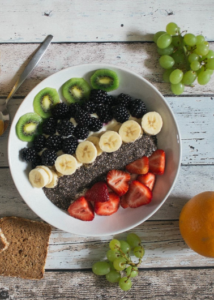
What criteria does a dessert need to meet to be considered vegan?
Vegan, vegan, vegetarian, …the designations often get mixed up in our minds and it is complicated to know what dietary restrictions are associated with each term. With regard to veganism in particular, what are the criteria that make a dessert qualify as vegan?
What distinguishes vegans from vegetarians?
In dietary terms, veganism can be defined as a strict vegetarian diet. A vegan is therefore necessarily vegetarian, while the reverse is not always true.
To be vegetarian, you must not consume any product of direct animal origin: in the case of desserts, this excludes certain additives, such as cysteine, produced from poultry feathers, or pork gelatine, a thickener used in many desserts.
Veganism adds an additional constraint: all products from animal exploitation are also banned, such as milk and butter, products of human exploitation of cows. It should be noted that veganism is not constrained to eating habits; it is a comprehensive approach that also excludes the use of animal products in general, such as leather.
While veganism is a way of life, it is not a dogma. Although the community has organized itself through the Internet and the creation of guaranteed labels, there are real debates on whether or not to eat insects, for example. Veganism is a truly personal process, which can be driven by health, ecological, welfare, or even political convictions, especially anti-speciesist ones.
What are the criteria to be met?

A vegan dessert must therefore scrupulously respect the rule of using only vegetable or mineral products in its recipes. Eggs, butter and milk are obviously prohibited, but also honey (a product of the bees). Beware, the devil often hides in the details! Did you know, for example, that white sugar is sometimes bleached using calcined cattle bones? Yes, sugar is not naturally white! Therefore, you have to use untreated sugar or sugar bleached through an alternative process.
Wheat flour, on the other hand, is generally considered to be accepted, even if it contains dust from insects accidentally caught during harvesting. Vegans try to keep their impact on the environment to a minimum, but perfection is not possible. Of course, if you are vegan AND eat gluten-free, wheat flour should be avoided.
At Vegan Desserts, we are committed to offering you guaranteed vegan desserts by scrupulously respecting the strict criteria of this way of life and by carefully controlling our ingredients to guarantee their origin and manufacturing processes. During production, we also check that our products contain no trace of non-vegan ingredients. If you would like to offer vegan desserts to your customers and thus expand your range of services, please contact us via our form!

